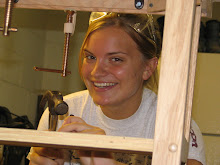We see anywhere from 30 to 70 refugees on a Monday which m
 akes it a hectic day that needs a lot of organization. There are color- coded nametags that help navigate families between different stations including vitals, histories, immunizations, labs and even behavioral health consults. As they travel through this gauntlet of health services, someone needs to keep track of their medical charts, know where each family goes next, if they need a translator at that station, make sure all stations are completed, and that a urine sample is deposited before they walk out our doors. This job, which has been affectionately nick-named the “quaterback postion” (complete with a dry erase board and sticky notes to “run the plays’), belongs to Kim, one of our staff nurses. I normally serve as her second-in-command, but last week Kim was not there and I had to take over the coordinating duties.
akes it a hectic day that needs a lot of organization. There are color- coded nametags that help navigate families between different stations including vitals, histories, immunizations, labs and even behavioral health consults. As they travel through this gauntlet of health services, someone needs to keep track of their medical charts, know where each family goes next, if they need a translator at that station, make sure all stations are completed, and that a urine sample is deposited before they walk out our doors. This job, which has been affectionately nick-named the “quaterback postion” (complete with a dry erase board and sticky notes to “run the plays’), belongs to Kim, one of our staff nurses. I normally serve as her second-in-command, but last week Kim was not there and I had to take over the coordinating duties.Now the doctors, nurses and volunteers do an incredible job on their own, but it seems that if I can be in charge of knowing where everyone is and where they are going next, they can do their job easier, more effectively and with less stress. I think this position is a good use of my talents; but what makes it the most rewarding is the moments I get to spend with the refugees. It’s the shared smile as I help put on their name tag or the laughter that they try to hide as language barriers cause me to physically act out how they are to give a urine sample.
All mornings at our clinics, but especially Mondays with our refugees, are truly an indescribable, awesome thing to see. The work that is done and the love that pours out of Siloam is inspirational and I feel blessed to be a part of it all.
